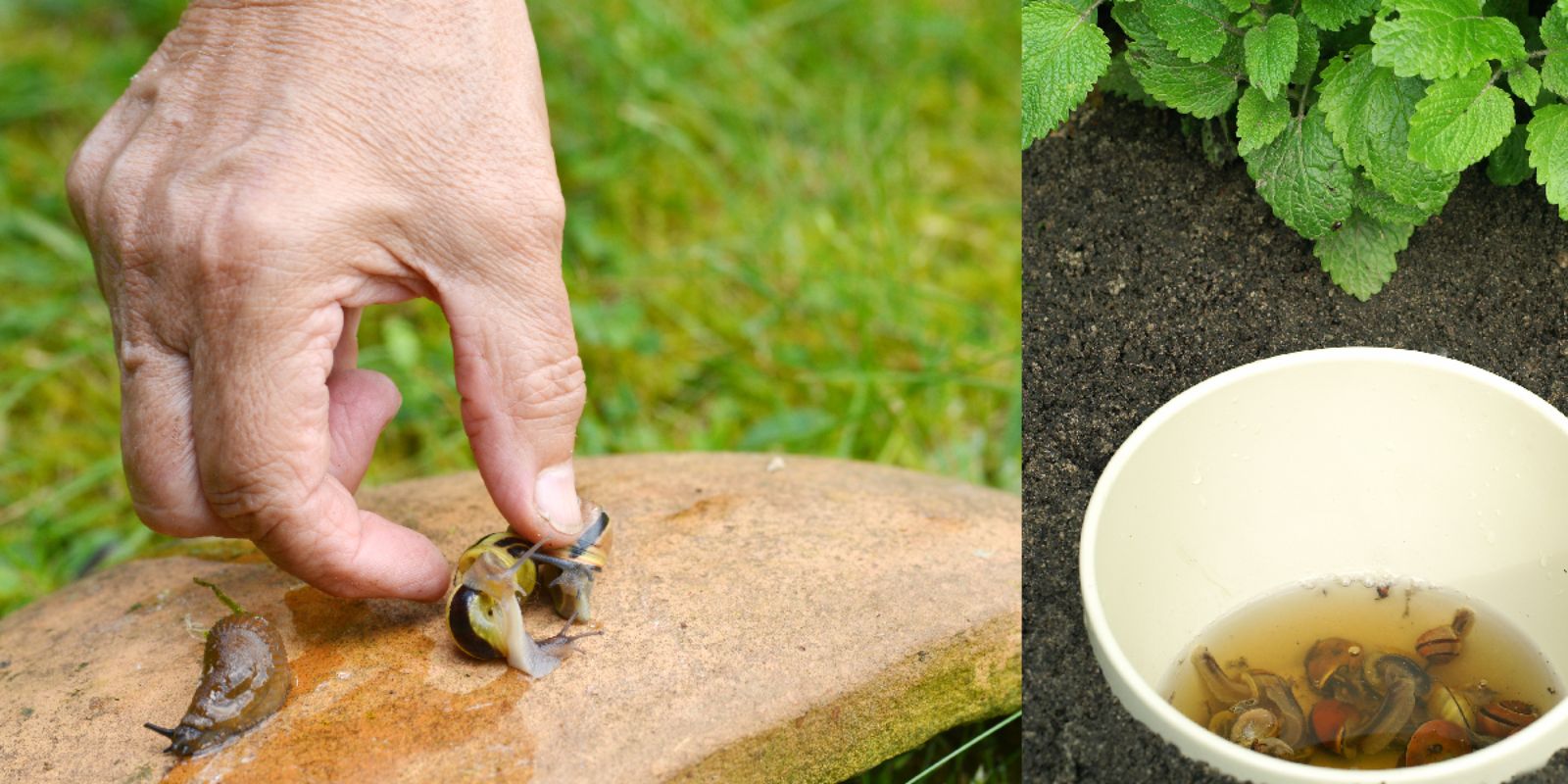Slugs and snails are common garden pests that can wreak havoc on your plants, feeding on leaves and stems and leaving unsightly trails behind. While chemical treatments are available, many gardeners prefer natural methods to control these pests, minimizing harm to beneficial insects and the environment. This guide will provide you with practical, eco-friendly solutions to manage slugs and snails in your garden effectively.
Understanding Slugs and Snails
Slugs and snails are mollusks known for their slimy trails and appetite for a wide range of plants. They are particularly active during moist, cool conditions and can be a significant problem in gardens with high humidity or frequent rainfall. Understanding their behavior and habitat preferences is crucial for effectively managing them.
Characteristics:
- Slugs: Slimy, shell-less mollusks that thrive in damp environments. They are most active at night and can cause significant damage to tender plants.
- Snails: Similar to slugs but equipped with a protective shell. They also prefer moist conditions and are active during the same times as slugs.
Natural Methods for Slug and Snail Control
1. Use Beer Traps
1.1. The Attraction Factor
Slugs and snails are attracted to the yeast in beer. Setting up beer traps can effectively lure and drown these pests. This method is simple and inexpensive.
1.2. How to Set Up
- Materials Needed: Shallow containers, beer (any kind will do).
- Steps:
- Bury the containers in the soil so the rim is level with the ground.
- Pour a small amount of beer into each container.
- Place the traps around your garden, focusing on areas where slugs and snails are most problematic.
1.3. Maintenance
Check the traps regularly, especially after rainy nights, and refill with beer as needed. Dispose of the dead slugs and snails and clean the containers periodically.
2. Create a Barrier
2.1. Using Physical Barriers
Certain materials can deter slugs and snails by creating an unpleasant or impassable surface. These barriers can be effective in protecting your plants.
2.2. Types of Barriers
- Crushed Eggshells: Sprinkle crushed eggshells around your plants. The sharp edges irritate the slugs and snails, discouraging them from crossing.
- Coffee Grounds: Used coffee grounds can be spread around plants. They are gritty and can act as a barrier, as well as having repellent properties.
- Diatomaceous Earth: This natural powder made from fossilized algae can be sprinkled around your garden. It works by dehydrating slugs and snails when they come into contact with it.
2.3. Application Tips
- Ensure the barriers are applied in a continuous ring around your plants.
- Reapply the materials after rain or heavy watering, as they can wash away.
3. Encourage Natural Predators
3.1. Beneficial Wildlife
Attracting animals that prey on slugs and snails can help keep their population under control. Encouraging natural predators can create a balanced ecosystem in your garden.
3.2. Types of Predators
- Birds: Birds like robins and blue jays eat slugs and snails. Install bird feeders and birdbaths to attract these helpful creatures.
- Frogs and Toads: Frogs and toads feed on slugs and snails. Create a habitat for them with a small pond or moist areas.
- Ground Beetles: These beetles are effective predators of slugs and snails. Provide shelter for beetles with leaf litter or debris.
3.3. Creating Habitats
- Birdhouses and Feeders: Place these in your garden to attract birds.
- Ponds: Even a small pond can attract frogs and toads.
- Mulch and Ground Cover: These can provide habitat for ground beetles.
4. Hand Pick and Dispose
4.1. Manual Removal
Hand-picking slugs and snails is an effective method for small gardens or areas with severe infestations. It is labor-intensive but can provide immediate results.
4.2. How to Hand Pick
- Timing: Look for slugs and snails in the early morning or late evening when they are most active.
- Tools: Use gloves or a small scoop to remove the pests.
- Disposal: Place the collected slugs and snails in a bucket of soapy water to kill them. Dispose of them away from your garden.
4.3. Preventative Measures
- Regular Checks: Regularly inspect your garden for new slugs and snails.
- Traps: Use traps in conjunction with hand-picking to manage populations effectively.
5. Maintain Garden Hygiene
5.1. Clean and Tidy
A clean garden is less attractive to slugs and snails, as they thrive in damp, cluttered environments.
5.2. Steps to Maintain Hygiene
- Remove Debris: Clear away fallen leaves, mulch, and other debris that can provide hiding spots for slugs and snails.
- Avoid Overwatering: Excess moisture encourages slug and snail activity. Water your garden in the morning to allow the soil to dry out by evening.
5.3. Mulching
- Types of Mulch: Use coarse mulch or mulch materials that dry out quickly. Avoid using fine mulch that retains moisture.
Troubleshooting Common Issues
1. Ineffective Barriers:
If barriers aren’t working, check for gaps or areas where slugs and snails could bypass the barriers. Ensure that barriers are applied in a continuous ring and reapply after rain.
2. Poor Trap Performance:
If traps aren’t catching many pests, consider relocating them to more strategic locations or adding more traps around the garden.
3. Persistent Infestation:
If slugs and snails remain a problem, combine multiple methods for a more comprehensive approach. Regular maintenance and monitoring are key to long-term control.
Conclusion
Managing slugs and snails naturally can be both effective and environmentally friendly. By using methods such as beer traps, physical barriers, encouraging natural predators, hand-picking, and maintaining garden hygiene, you can control these pests without relying on harsh chemicals. Implementing these strategies will help keep your garden healthy and vibrant, ensuring your plants can thrive without the damage caused by these common garden pests.
Motivational Sentence: Take control of your garden naturally and keep those pesky slugs and snails at bay—try these eco-friendly solutions today and enjoy a thriving, beautiful garden! 🌱🐌 #NaturalPestControl #EcoFriendlyGardening #SlugAndSnailSolutions #GreenThumb #GardenHacks #OrganicGardening #PlantCare

